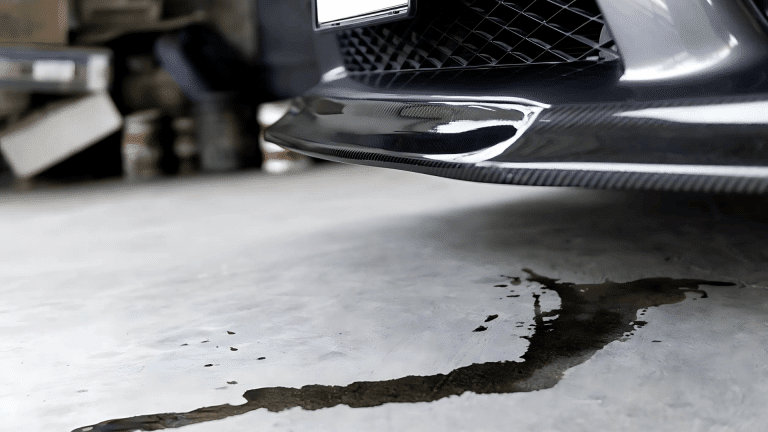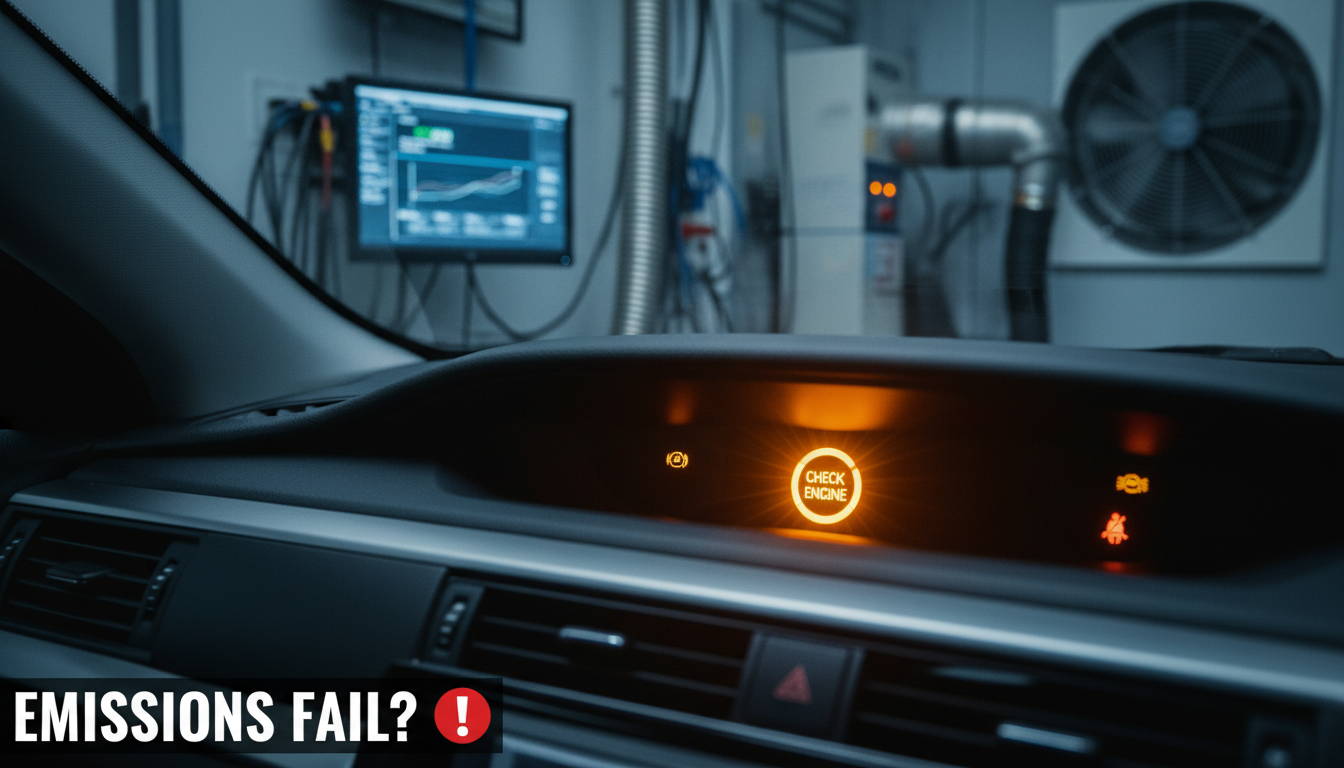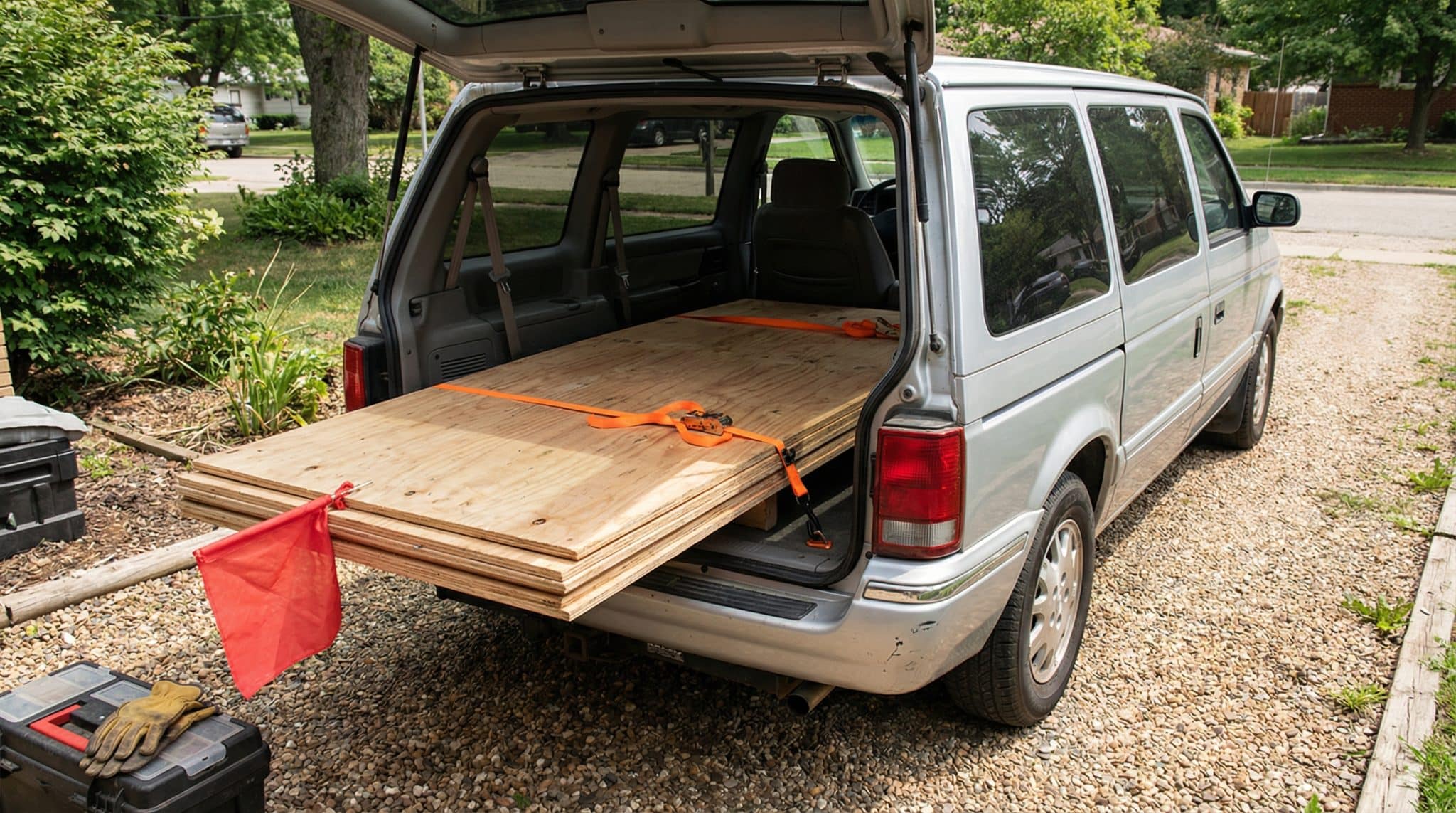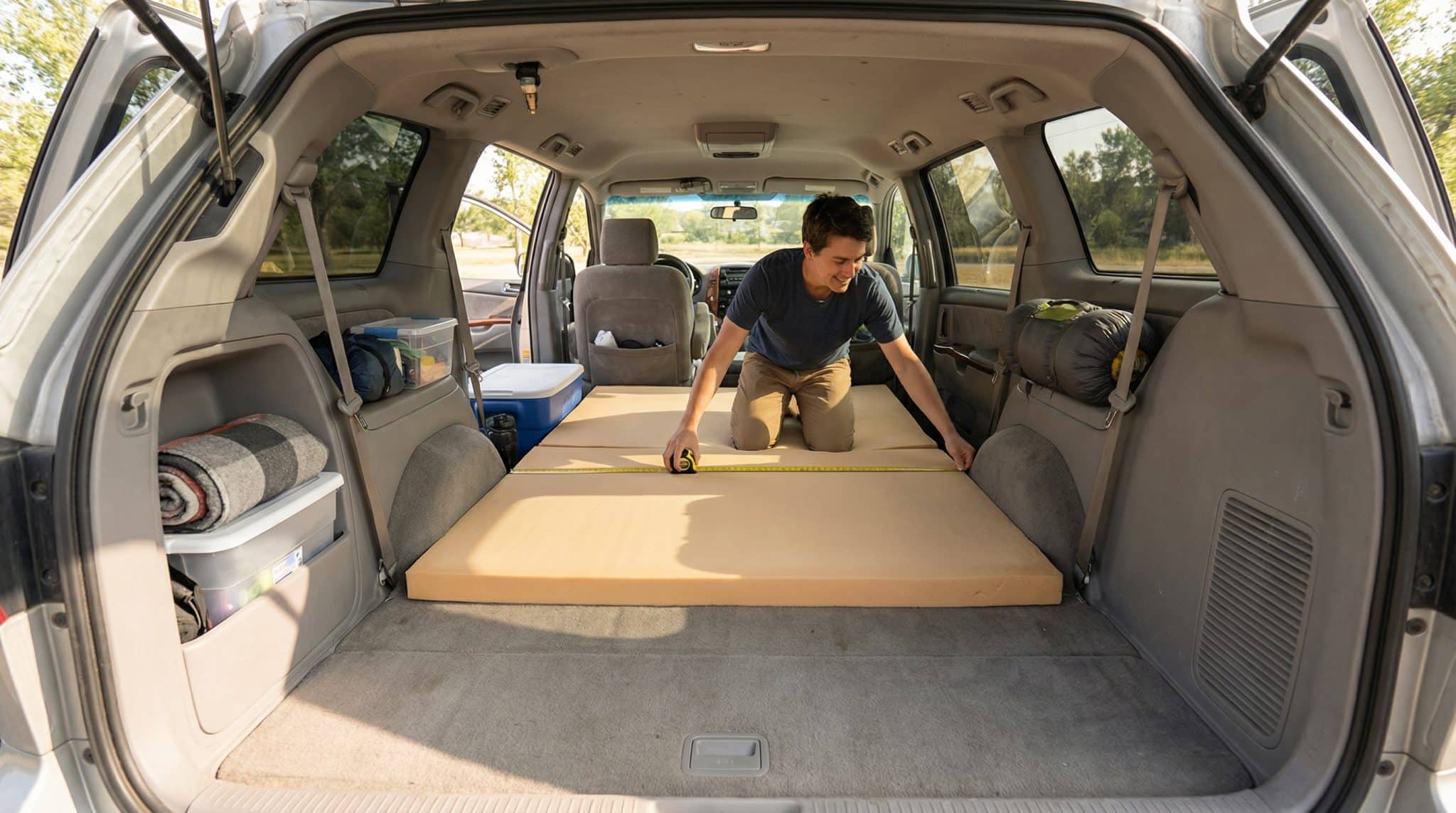When I walked out and saw a dark puddle under my car, my heart sank. I immediately started searching for cars leaking oil when parked and realized I wasn’t the only one facing this issue.
Many drivers have found unexpected oil spots and wondered what went wrong. Sometimes, it’s a small issue, such as a loose plug, and other times, it’s a sign of a bigger problem.
I didn’t want to ignore it and end up paying more later. So I dug into forum posts, shared stories, and expert advice to understand what causes an oil leak.
If you’re dealing with the same thing, this blog is for you. I’ve gathered real experiences, helpful tips, and key warning signs to help you figure out what’s going on before things get worse.
What It Means When Your Car Is Leaking Oil While Parked
Noticing a dark oil spot under a parked car can be unsettling. It may be a minor issue or the beginning of something more serious.
Leaks like this often indicate worn gaskets, loose fittings, or internal pressure issues.
Many drivers have shared similar concerns online, ranging from simple fixes, like tightening a drain plug, to more involved repairs, such as replacing a valve cover gasket.
Early detection makes a big difference in cost and damage prevention.
Understanding what others have gone through helps take the guesswork out of the next step and can prevent a minor issue from turning into an expensive repair.
What Causes an Oil Leak in a Parked Car?
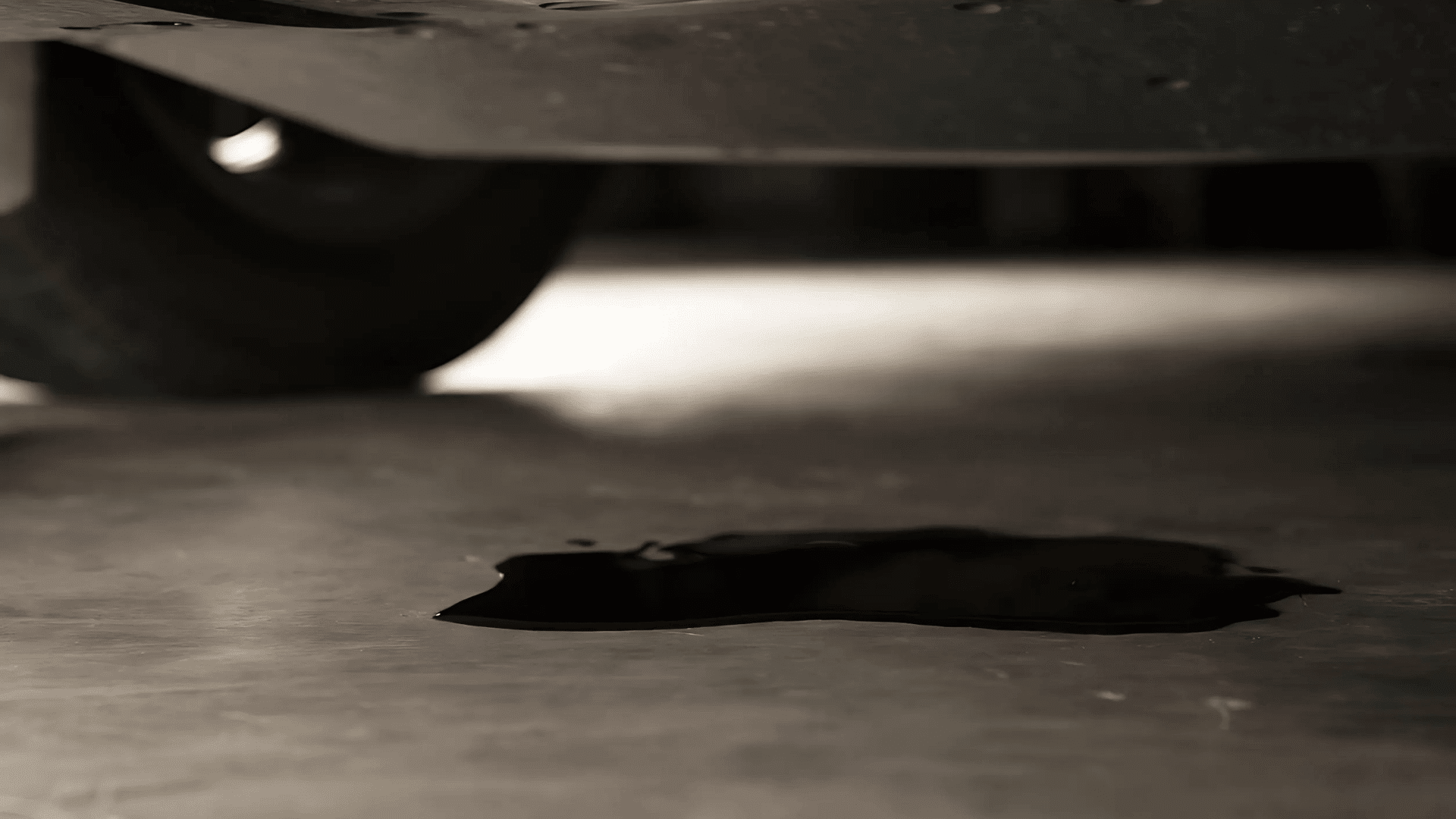
When a car leaks oil while parked, common causes include worn parts, poor installation, or damage. Drivers often report similar issues, especially in high-mileage cars or after oil changes.
1. Worn-Out Gaskets and Seals
Your engine has several gaskets and seals that contain oil under high pressure and heat. Over time, these rubber or silicone components get brittle, crack, or shrink.
This is especially true for valve cover gaskets and camshaft seals. When they fail, oil can slowly seep out and drip when the car is parked. Many drivers report seeing fresh spots after the engine cools.
These types of leaks typically worsen with age and mileage, especially in older vehicles or those driven in hot climates.
2. Loose or Damaged Oil Pan
The oil pan, located at the bottom of your engine, holds all the oil that keeps it lubricated. It’s secured with bolts and sealed with a gasket.
If the pan gets dented by road debris or if bolts loosen over time, oil will start to leak. A stripped drain plug from an oil change can also cause problems.
Many drivers in forums noticed leaks after hitting a pothole or speed bump. These leaks can leave puddles right where your car rests overnight.
3. Faulty Oil Filter Installation
Oil filters are a common source of leaks, especially right after an oil change. If the filter is installed too loosely or too tightly, or if the old rubber gasket sticks to the engine, oil can seep out as the car sits.
A double gasket is a common mistake that causes slow leaks over time. Several DIYers on forums admit to learning this the hard way.
Always check for leftover gaskets and follow torque guidelines to prevent this messy but straightforward mistake.
How to Spot the Signs of an Oil Leak
Catching an oil leak early can reduce repair costs and improve engine health. Drivers often ignore warning signs until it’s too late. Knowing what to look for helps you respond quickly. Here are common signs of oil leaks from a parked car.
- Puddles Under the Car: A brown, amber, or black puddle near the front of your car usually means engine oil is leaking. The larger the spot, the more serious the leak may be.
- Burning Oil Smell: If you catch a burnt smell after driving, oil might be hitting hot engine parts like the manifold. This smell is a clear sign that something’s wrong.
- Oil Light Flickering: A flickering or steady oil light on your dashboard means your engine could be losing oil pressure. This shouldn’t be ignored.
Community Insights on Car Leaking Oil When Parked
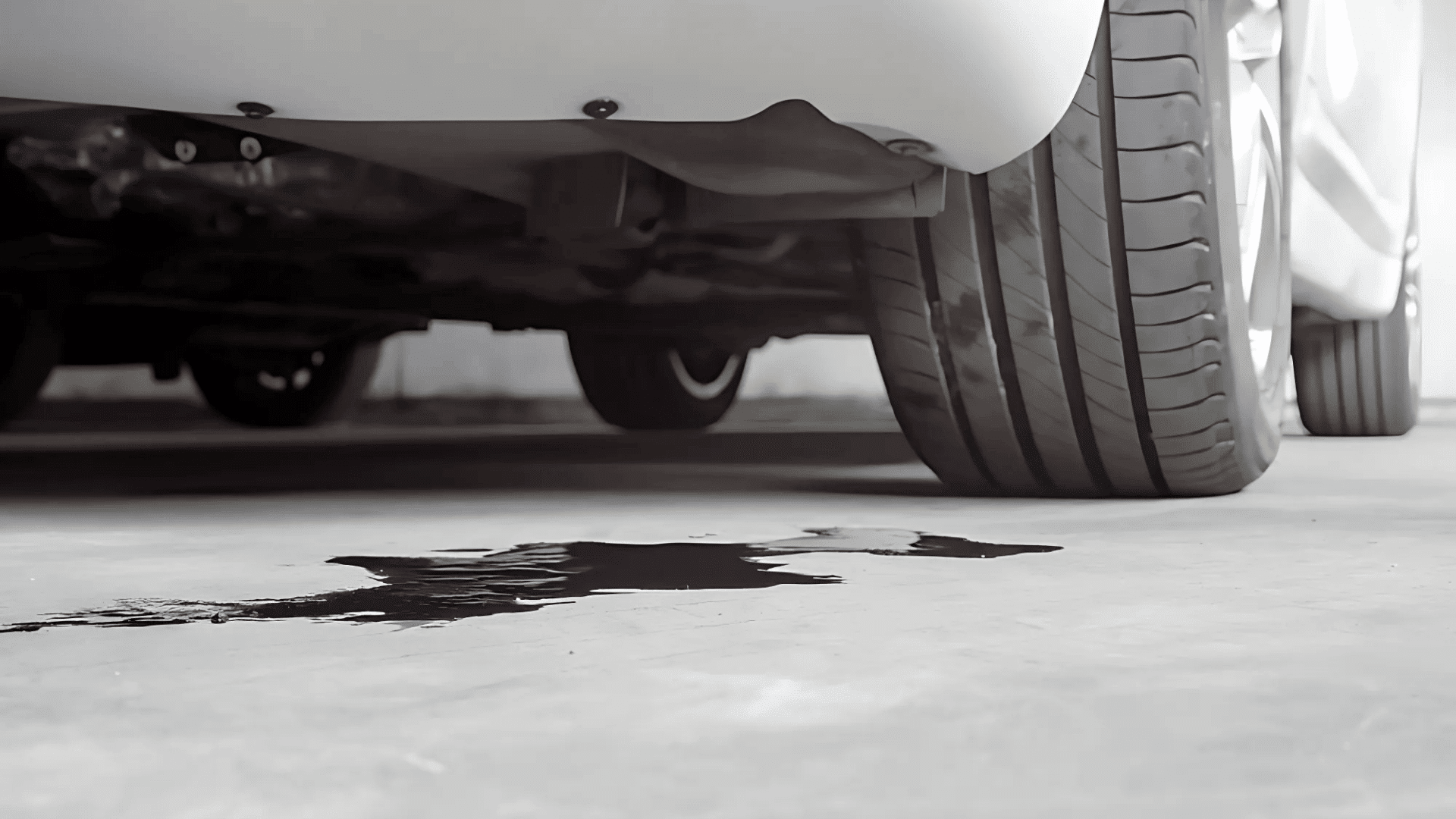
On online forums and community platforms, many discuss parked car oil leaks. Leaks often start small and grow if ignored. Drivers learn from experience, revealing what to watch for and effective fixes.
What Drivers Commonly Report
- Small oil puddles appear after the car sits for hours
- Cold weather makes leaks worse due to shrinking gaskets
- Older and high-mileage vehicles are more likely to leak
Frequent Fixes That Helped
- Switching to high-mileage oil with seal conditioners
- Replacing worn valve cover and oil pan gaskets
- Retightening or replacing oil filters and drain plugs
Issues Often Tied to Poor Installation or Maintenance
- Oil filter gaskets left behind during DIY oil changes
- Stripped the drain plug threads from overtightening
- Aging seals that were never replaced during routine service
Important takeaway: While not every oil leak is a sign of serious damage, ignoring it can result in higher costs down the line. What helped most owners was catching the issue early and learning from others who’ve been there before.
Fixing a Car That’s Leaking Oil
Some oil leaks can be fixed in your driveway with basic tools, while others may need a mechanic. Many drivers shared success with DIY fixes that saved time and money. Here are common fixes that worked for minor, early leaks.
- Try high-mileage oil with seal conditioners: They contain additives to recondition rubber seals and gaskets, reducing leaks in vehicles over 100,000 miles. It’s an affordable way to delay or prevent costly older engine repairs.
- Inspect the drain plug and oil filter: Loose or poorly installed parts often cause leaks. Tightening or replacing them usually stops drips. Use a torque wrench and check for leftover gaskets during oil changes.
- Use UV dye and a black light: Add UV dye to engine oil, run the car, then shine a black light to identify leaks. It’s a safe and cost-effective way to detect hidden leaks.
When to See a Mechanic About Leaking Oil
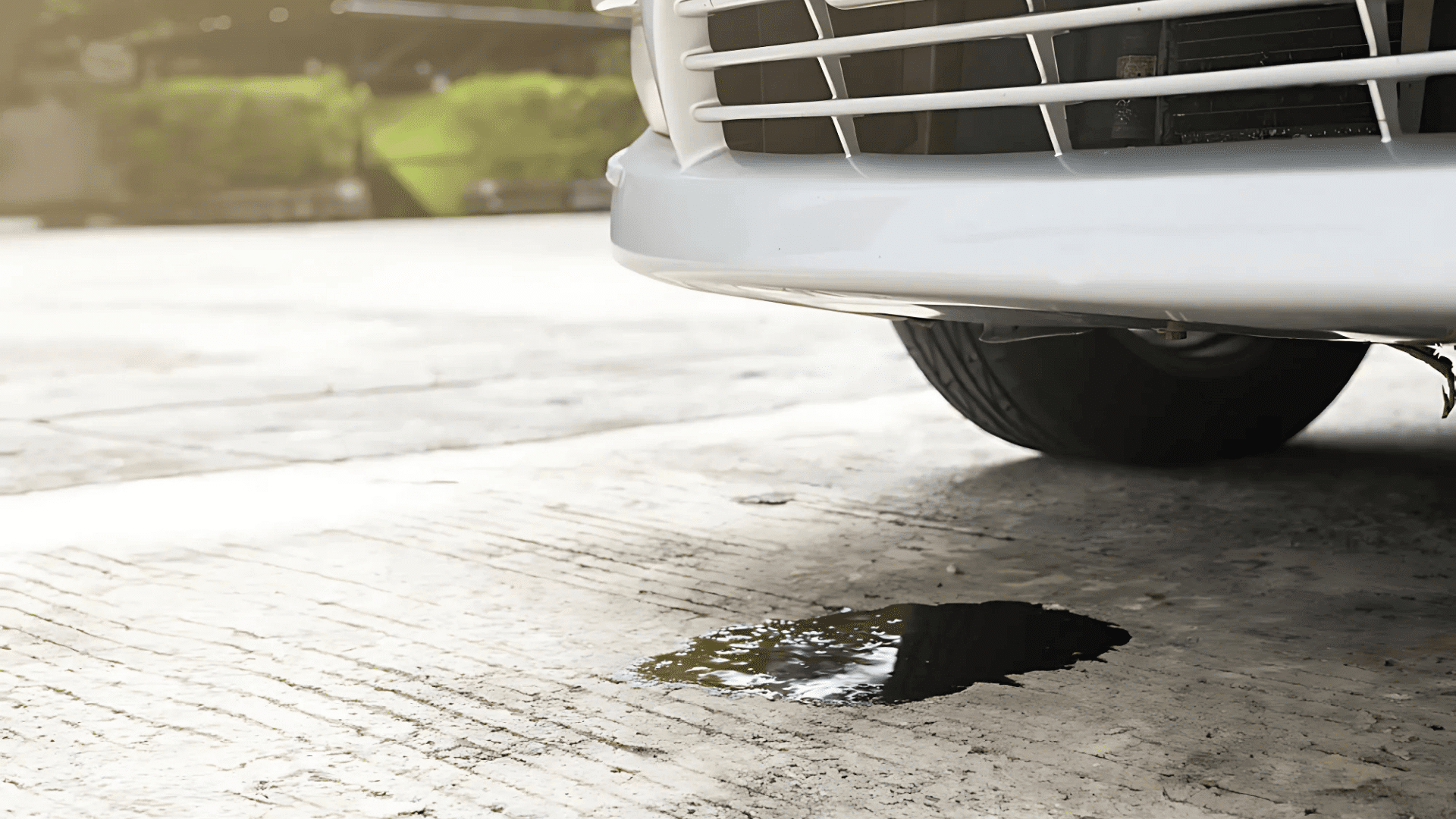
Not every oil leak necessitates a costly repair, but some situations require professional assistance.
1. It Leaks More Than a Few Drops
If you’re seeing large oil spots or puddles every time your car is parked, it’s time to get it checked. This often indicates a blown gasket, a damaged oil pan, or a failed seal that allows oil to escape at a faster-than-normal rate.
Many forum users who ignored this early sign ended up needing expensive repairs. A mechanic can quickly diagnose the severity of the leak and prevent it from worsening or spreading oil all over your driveway.
2. Smoke Comes From the Engine
Seeing or smelling smoke after driving is a significant warning sign. This usually means oil is dripping onto hot engine parts, such as the exhaust manifold, which can create a burning smell or even smoke.
It’s not just a mess; it’s also a fire hazard in some cases. Drivers on forums often shared that this issue worsened rapidly and wasn’t worth the risk. If you spot smoke or smell burning oil, don’t wait; take your car to a mechanic right away.
3. Oil Light Stays On
An illuminated or flickering oil warning light on your dashboard isn’t something to ignore. It’s usually a sign of low oil pressure, which could mean the leak is affecting your engine’s ability to stay lubricated.
Driving in this condition risks serious engine damage. Many users reported that they waited too long and ultimately experienced engine failure. If this light comes on and you’ve spotted a leak, get the car inspected as soon as possible.
How to Prevent Future Oil Leaks
Preventing oil leaks isn’t complicated, and it can save you time and money in the long run. Many drivers shared simple habits that helped them avoid recurring leaks.
- Change your oil on time: Old, dirty oil can’t protect engine seals, causing gaskets to dry out and crack, especially in older vehicles. Sticking to your schedule helps keep seals flexible, reducing leaks.
- Use quality parts: Cheap oil filters and gaskets may save money initially, but often fail sooner. Many users find that OEM or trusted aftermarket brands prevent leaks. Quality parts seal better, last longer, and withstand pressure and heat more reliably.
- Inspect seals at every oil change: Visually check gaskets and seals near the valve cover and oil pan for signs of leaks, such as dark, wet, or shiny spots. Early detection can prevent serious issues.
The Bottom Line
After reviewing dozens of forum threads and consulting with others, I realized that a car leaking oil when parked isn’t always a significant issue, but it should never be overlooked.
I nearly brushed off a small stain in my driveway, thinking it was nothing. But after reading real user stories, I checked under the hood and found a failing valve cover gasket.
Fixing it early saved me from a bigger repair bill. The biggest takeaway? Catching small leaks early makes all the difference. Many drivers fixed theirs with a simple oil change or gasket swap.
If this blog helped you identify your oil leak, share it with someone else who is dealing with the same issue. Sharing experiences helps everyone save time, money, and stress.


